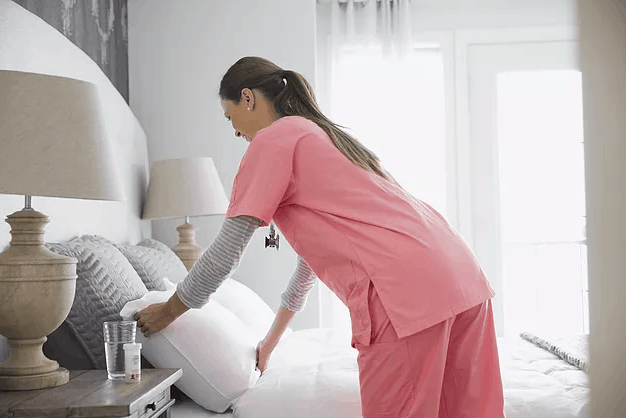With over 1 million orders

DR. ARTHRITIS TIPS: OUR SOLUTIONS FOR COMMON CAREGIVING CHALLENGES
It almost goes without saying—caregivers should not neglect their own health and wellbeing.
But often, in the rush to take care of others, especially loved ones and friends suffering from chronic pain like arthritis, it’s easy to forget about your own needs. So with that in mind, we thought we’d run down some of the most common caregiving challenges experienced and provide practical and actionable solutions you can try.
1. When you start to feel completely exhausted…
Load up on natural energy boosters. A good night’s sleep will do wonders for you. Granted, taking care of someone whose pain likely keeps them (and in turn, you) up at night makes this challenging. But there are other things you can do manage this. For instance, skip the late night binge-TV watching, avoid fiddling on your smartphone before going to bed, and bring down the temperature in your room as well as turning the lights down low.
Try eating healthier as well. Not only are you making it easier for the chronic pain sufferer to stick to their own healthy diet, it also gives you a chance to skip packaged, high-calorie, and preservative-filled foods that spikes your sugar levels and rapidly depletes your energy.
A little exercise daily also helps. Even just 15 minutes of low-impact walking can help manage fatigue levels.
2. When you begin to feel very overwhelmed by everything…
As a caregiver to someone with a debilitating condition, it’s likely that you spend your days doing daily chores on top of managing and administering medication and coordinating with healthcare professionals. It can easily feel like your day to day duties are doubled—and even the most organized caregiver can feel overwhelmed.
Try talking to people about what you feel. Don’t bottle it all up. Speak to someone about your own physical and emotional limitations—even to the person you’re caring for. You’d be surprised at how understanding they can be about your situation as well.
3. When seeing your loved one suffering affects you too much…
Give yourself—both mind and body—time to recharge. Even just a few minutes daily to clear your head and listen to some music or spending some quiet time by yourself is important. Give yourself an opportunity to focus on the positive side of things. Understandably, it’s natural to be saddened by difficult situations. But making a conscious effort to focus on simple joys can really help.
4. When caregiving is taking an actual physical toll on you…
Caregiving is physically demanding. Depending on the health of the person you’re caring for, typical tasks will include supporting them while walking or standing, a lot heavy lifting, walking and running around. You’ll basically find yourself on your feet more.
Keep this in mind though, you don’t necessarily have to do everything for the person you’re taking care of. In fact, whenever possible, give them the chance to take on tasks that they are willing to do themselves, even if it takes them longer to do so.
Keep aids and tools like supports, compression sleeves, or walking aids handy for your charge. They’re more useful than you can imagine.
In addition, be realistic about your own limits. Caregiving isn’t just about physical labor, chores and tasks. If you start to feel sore and tired, stop. Sit down and provide another important aspect of caregiving—support. Talk to the person you’re caring for and have a conversation, read to them, or simply spend time with them relaxing. Offering emotional support is just as important as physical help.
5. When you start to feel burnt out…
Don’t be afraid to delegate. Caregiving doesn’t have to happen in a silo. Other family members and friends are more than willing to help and chip in. Rotate your schedules around to help manage the physical toll it takes to take care of someone else. This also helps in terms of uplifting spirits and ensuring that you don’t feel too closed off.
If you’re experiencing the challenges of caregiving, keep in mind that you’re not alone. A survey conducted by caring.com notes that caregiving can be a major source of stress—even more so than financial concerns and medical problems . It’s normal…and more importantly, you can do something about it.
For us at Dr. Arthritis, support from family and friends is key, as are choosing the right tools and aids to ensure that arthritis sufferers maintain their quality of life.
